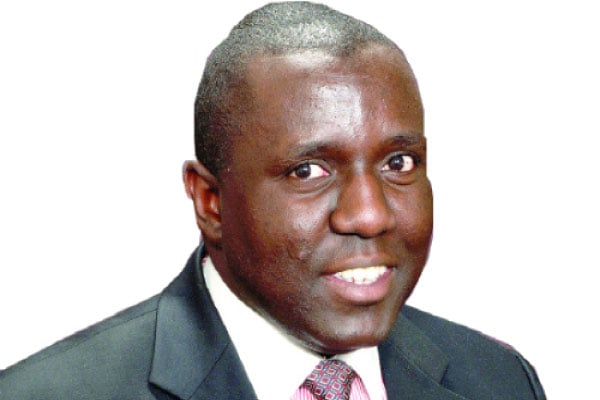Debate on bail law, dropping fish stocks in Lake Victoria

Author: Mr Karoli Ssemogerere is an Attorney-at-Law and an Advocate.
What you need to know:
- Fisheries is a multi-billion business, and rising demand for fish also means bigger opportunities for the fish mafia.
Aleaked “dated” Cabinet memo on changes in the law on bail has dominated certain headlines. The President wants to impose a 180 day time limit for bail in cases of offences triable in the High Court.
These offences would cover the old school capital offences such as treason, murder and rape, among others, but also cover offences triable under the Prevention of Corruption Act, cases tried in the International Crimes Division of the High Court.
The anti-bail wave gained height at the time of now fizzled out Masaka killings where more than 30 people were killed by machete wielding thugs. For various reasons, there have been two notable pushbacks on the law on bail. First, Chief Justice Alphonse Owiny Dollo correctly expressed reservation at Ben Kiwanuka Memorial Lecture that the entitlement to bail was a constitutional matter.
Mr Owiny Dollo at the helm of perhaps the most pro-status quo Supreme Court in history sounded skeptical of moves to limit bail. His deputy, a former Director of Public Prosecutions, Richard Buteera, sounded a more cautious note stating that the courts would give effect whatever Parliament passed as the law on bail.
The debate on bail comes two years after major pronouncements by Supreme Court Justice Esther Kisaakye in two single justice applications for bail pending appeal, Joshua Magombe v Uganda Misc. Criminal Application No. 11 of 2019 and Irene Kauma v Uganda Misc. Criminal Application No. 16 of 2019.
In both cases Justice Kisaakye sitting as a sole justice ruled that the entitlement to bail was corollary to the presumption of innocence that automatically lapsed with a conviction.
She dismissed two bail applications by former MTN employees whose convictions had been upheld by the High Court and Court of Appeal. Kisaakye also overturned a nearly 20 year precedent by a former chairperson of the Commission of Inquiry into violation of Human Rights, Justice Arthur Oder that stated the law on bail pending appeal in Arvind Patel v Uganda Misc. Application No 1 of 2003 finding it was bad law and had no basis in the Constitution.
Justice Kisaakye’s rulings raised a lot of concern in the legal fraternity but it was difficult to fail to appreciate their candor and they have not as yet elicited a more vigorous response by the Supreme Court enbanc. In any case, even though Kisaakye ruled the opposite of Faith Mwondha, JSC, and has charted a unique jurisprudence at the Supreme Court that states the law in classic positivist nuances.
In the recently concluded presidential election petition, in a single dissent she stated the obvious quandary her colleagues faced at the bench. She said: “The outgoing administration is the incoming administration and is in charge of enforcement of the election laws’. Yet another observation that was impossible to refute on a factual basis.
The end of the discussion on bail has been tempered by two developments. First, the National Resistance Movement caucus expressed reservations on the anti-bail developments and informed their party chairman.
Second, the ongoing attempts to repeatedly charge and remand two National Unity Platform party MPs Allan Sewanyana and Muhammad Ssegirinya and almost simultaneously physically grab them from the hands of their lawyers at Prisons gates has caused a lot of alarm in the wider public. Needless to say, both MPs may have relaxed in their volubility but that is besides the point that speech even where nonsensical is protected by the freedom of speech in the constitution. In any case, the offending language does not fall under other content prohibited by the laws.
Straight into the water, the Acting Director Commissioner of Fisheries, Ms Joyce Okwaput Nyeko, is sounding an alarm at illegal trawling in Lake Victoria. Reports show that licensed vessels after “illegally” fishing in the lake, land their produce in Kenya, before crossing the borders with transit cargo to DR Congo.
As Ugandan fisheries and exports have dropped, Kenya with just 6 percent share of Lake Victoria is reporting rising catches even though their fisheries exports are carried by Ugandan licence holders.
Demand for fresh, dry and salted fish continues to rise. The rise in demand is expected as supply of other products such as beef has dropped. Illegal trawling a daily battle in all high seas – Europe, South China Sea is attracting marine efforts to fight illegal fishing.
In Uganda, this transit arrangement that has left local officials baffled and Uganda Revenue Authority harmless is a serious disruption of domestic food chains. Globally, fisheries is a multi-billion business, and rising demand for fish also means bigger opportunities for the fish mafia.
Mr Ssemogerere is an Attorney-At-Law and an Advocate. [email protected]




